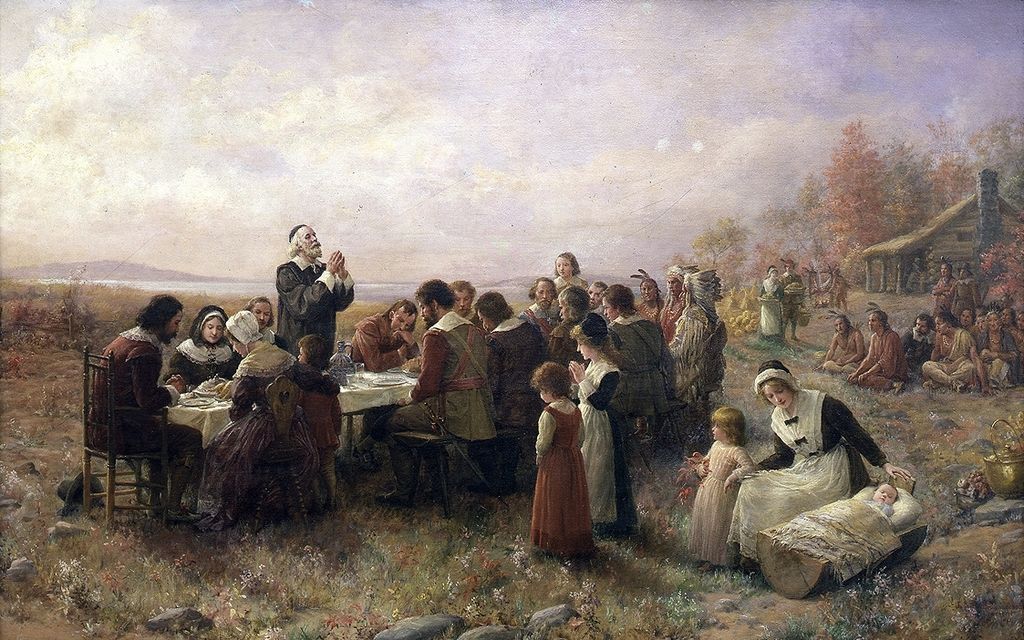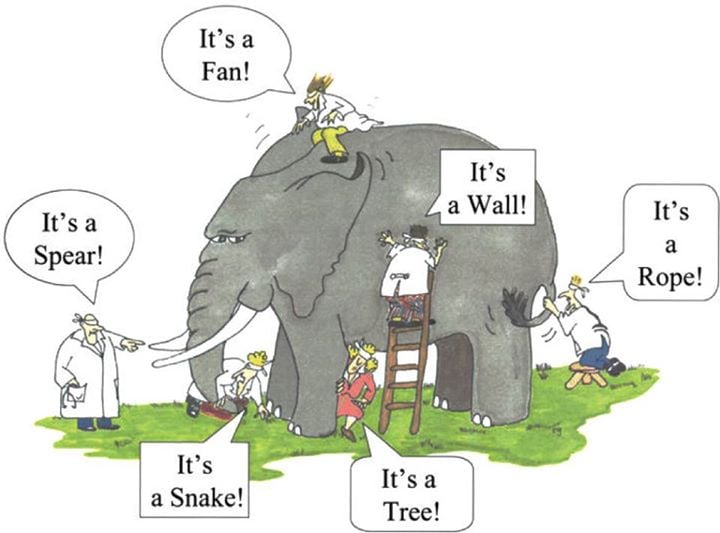* * * *

* * * *
I’ll get to Thanksgiving in a bit, but first want to say something about a tendency to go down Rabbit Trails. I do a lot of that in my writing. That’s why my family and others say my writing “goes all over the place.” Like, sometimes I go “off on a crazy tangent” or make crazy turns in writing. But I like rabbit trails, even as I try to follow that rule about Unity and Coherence in Writing. Which brings up a Bible passage I saw in Monday morning’s Daily Office Readings.
The Gospel was Matthew 17:14-2. In the Lectionary – Satucket version, Matthew 17:15 reads, “Lord, have mercy on my son, for he is an epileptic and he suffers terribly.” That made me wonder. I’ve been doing the Daily Office since 1992, and am now on my 15th trip through the Bible. But this is the first time in those 31 years that that passage caught my eye. “Is that how it’s written in Greek? Did the Hebrews or Greeks know that much about epilepsy?”
Which turned out to be another rabbit trail, which is nothing new for me.
Like some time ago my Daily Office reading included Psalm 46:9, “He makes wars cease… He breaks the bow and shatters the spear; he burns the shields with fire.” That made me wonder. Why specifically burn shields, those broad pieces of “defensive armor carried on the arm?” So I “rabbit trailed” and learned that in the original Hebrew, the word – translated “shields” – refers to “Something revolving, a wheeled vehicle.” More precisely, a chariot, the offensive tank of its day. Which means going down rabbit trails can be educational, so here’s the latest one.
It seemed to me – Monday morning – that the term “epilepsy” sounded way too modern for Matthew to use. So first off I went to the Bible Hub website. I wanted to see how the verse got translated in the King James Bible. (You know, the one God uses?) There the passage reads, “Lord, have mercy on my son: for he is lunatick, and sore vexed.” And most other translations read that the son had “seizures.” So I wondered, was this one of those new, updated translations that conservatives call “undignified?” (As departures from the “real” Bible, as noted by Garry Wills?) As for example, 1st Corinthians 14:6, where the original Greek reads, “Now brothers…” But some updated modern versions read, “Now brothers and sisters.” To that I’d say, “Use ‘brothers and sisters’ now, as long as we know how the original version read.”
Be all that as it may, that Matthew 17:15 rabbit trail led me to “something new under the sun:”
The ancient Greeks also began to speculate on the causes of epilepsy at this time – in fact the word ‘epilepsy’ comes from the Greek word for ‘to seize’ or ‘to attack’ because they believed seizures were caused by demons grabbing or attacking people. Some … also believed that epilepsy was a divine gift and a sign of genius and they called it the ‘sacred disease.’
None of which I knew, but learned about – just this past Monday morning, for the first time – from The history of epilepsy – the ancient world | Epilepsy blog. The article said that Hippocrates – who died in 370 BC, “father of medicine” – took issue with the idea that epilepsy was a “sacred disease ” idea. He said, of “the disease called ‘sacred[:]’ It is not, in my opinion, any more divine or more sacred than any other diseases, but has a natural cause … the fact is that the cause of this affection … is the brain.” The article concluded, “This is arguably when epilepsy was discovered.” In other words, some time around 400 B.C., or almost 500 years before Matthew wrote his Gospel, some Greeks knew about epilepsy. (Though the article added that “Hippocrates’s beliefs were not widely understood at the time and most people in the ancient world still thought seizures were caused by demons.”)
Which means there’s no clear cut answer to the question, “Was ‘epilepsy’ too modern a term for Matthew to use?” Or it could be said the answer “lies somewhere in between.” Maybe Matthew didn’t know the full technical term “epilepsy” as we understand it today. On the other hand the general term used back then did cover a lot of linguistic territory. It mostly referred to “seizures,” as generally translated in most Bibles. Which also is nothing new.
That is, the situation also resembles the faulty translation of “leprosy” from the Hebrew word ẓaraʿat. While traditionally translated at “leprosy,” the Greek translation for this word too “covers a wide range of diseases that produced scales.” And the original Hebrew word ẓaraʿat too embraced “a variety of skin ailments, including many non-contagious types.” Which also means, “There he goes again, going down one of those dang rabbit trails!”)
Which means in turn that it’s about time we got back to Thanksgiving 2023. Put another way, “What do all those rabbit trails have to do with the American holiday every November?” I’ll get to that in a minute, but first a note: “Thanksgiving” in America actually started a long time before 1863, when that day was made a nationwide holiday by Abraham Lincoln. And for that matter even long before 1621, with the first “Pilgrim Thanksgiving” in Plymouth Massachusetts.
For Native Americans – the first inhabitants – “gathering to give thanks was already a familiar custom, taking place not just annually, but 13 times throughout the lunar, calendar year – a cycle known as the Thirteen Moons. As one Wampanoag said, “Thanksgivings are a big part of our culture. Giving thanks is how we pray.” (The Wampanoags were the tribe who helped the Pilgrims survive their first winter, when half of them died.)
In other words, special days of thanksgiving have been around a long, long time. And as it also turns out, for a very good reason: “As more researchers dig into the science of gratitude, they’ve found the feeling likely played a key role in helping our ancestors band together and survive.” Which turns up another rabbit trail. “Who knew there was a science of gratitude?”
But there is, and it has a definite healing effect: “Thanking others, thanking ourselves, Mother Nature, or the Almighty[,] gratitude in any form can enlighten the mind and make us feel happier.” Which is why our annual Thanksgiving and all its other forms have stuck around so long: “That legacy continues today, as being in the mood for gratitude shapes who we are as a species and how we connect with the people around us.”
Which could be another rabbit trail, but it’s time to bring this post to an end. To end with the custom in many families for each member, around the table, to say specifically what he or she is thankful for this Thanksgiving 2023. So I’ll start: I’m thankful for the chance to go down all those rabbit trails, and keep on learning new things, every day, through the magic of blogging.
Now, if I could just make those blog-posts all unified and coherent.
Happy Thanksgiving – 2023!
* * * *

* * * *
The upper image is courtesy of Epilepsy Images Bible – Image Results. The image is attributed to “Wilhelm Tell,” not William Tell. (Which is the name I usually got in my Google Search.)
The Book of Common Prayer reference. The “corporate-mystical” prayer is on page 339, the post-communion prayer for Holy Eucharist, Rite I.
The full link to the Rabbit Trail comments is Today’s Idiom Is … Rabbit Trail.
For more on my tendency to go down Rabbit Trails see On Halloween 2023 – and a Sheol “rabbit trail,” which in turn borrowed from “the lower part of the text in On Eastertide – and ‘artistic license,’ from 2016.” Also on the topic of epilepsy see Is epilepsy mentioned in the Bible? | GotQuestions.org.
Re: Garry Wills. In his “What Jesus Meant” Wills noted a general conservatism in Bible translations, as for “reverential archaisms.” The result? Whenever a new translation comes out “it is almost always called undignified,” in that it departs from the King James Version. He added that the original Koine was a rough-hewn, “pidgin” marketplace Greek, often clumsy and muddled so much that translators invariably “try to give more churchiness to the evangelists.” Pages xi to xii, “Note on translation.”
Re: “Something new under the sun.” See contra, Ecclesiastes 1:9, “there is nothing new under the sun.”
Re: “Brothers,” or “brothers and sisters.” The Bible Hub commentary to 1st Corinthians 14:6 said the Greek brothers (ἀδελφοί (adelphoi) – “Vocative Masculine Plural” – referred to a “brother, member of the same religious community, especially a fellow-Christian. A brother near or remote.”
As for Thanksgiving itself, see past post I borrowed from, like On Thanksgiving 2019, On Thanksgiving – 2021, and from 2022’s On Thanksgiving 2022 – and an Unknown American Icon. They detail things like the story of John Howland, who came over on the Mayflower as an indentured servant, who was swept overboard in mid-Atlantic and almost drowned, but who went on to populate America with 2 million of his descendants. And how less than half the original Pilgrims survived the first year, and how of the 18 women, only four survived. (And other juicy details.)
The “giving thanks” quotes are from Thanksgiving is a year-round practice of giving thanks : NPR, and Giving thanks isn’t just a holiday tradition. As Wikipedia also noted, Days of Thanksgivng were celebrated quite often in England. One such nationwide day of Thanksgiving was proclaimed in 1588, after the victory over the Spanish Armada. Another “unusual annual Day of Thanksgiving” began in 1606 following the failure of the Gunpowder Plot, but that day then evolved into Guy Fawkes Day.
The Wampanoag taught the first Pilgrims “how to cultivate the varieties of corn, squash, and beans (the Three Sisters) that flourished in New England, as well as how to catch and process fish and collect seafood.” (Wikipedia.)
The lower image is courtesy of Thanksgiving – Wikipedia, caption: “Jennie Augusta Brownscombe, The First Thanksgiving at Plymouth, 1914, Pilgrim Hall Museum, Plymouth, Massachusetts.”
* * * *

